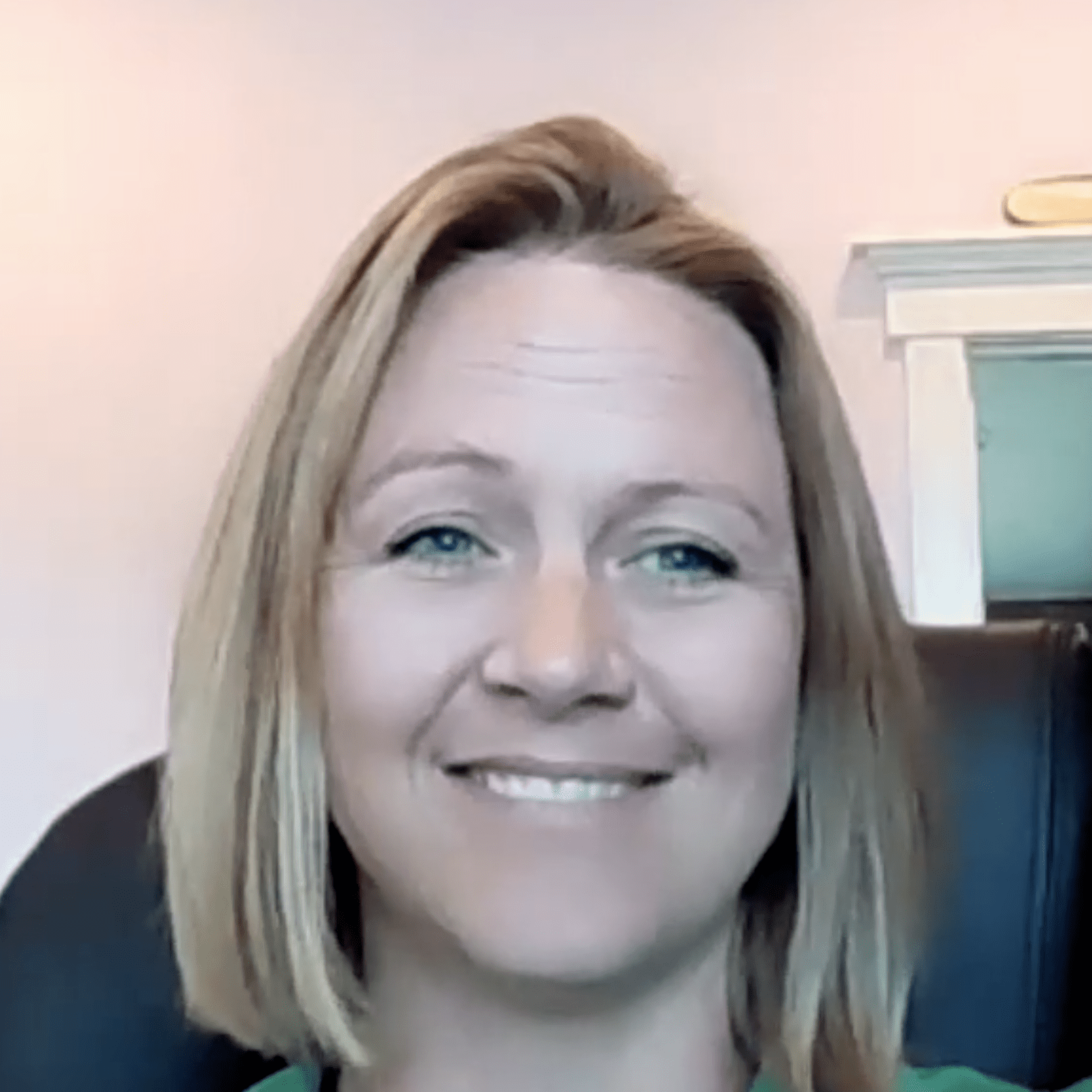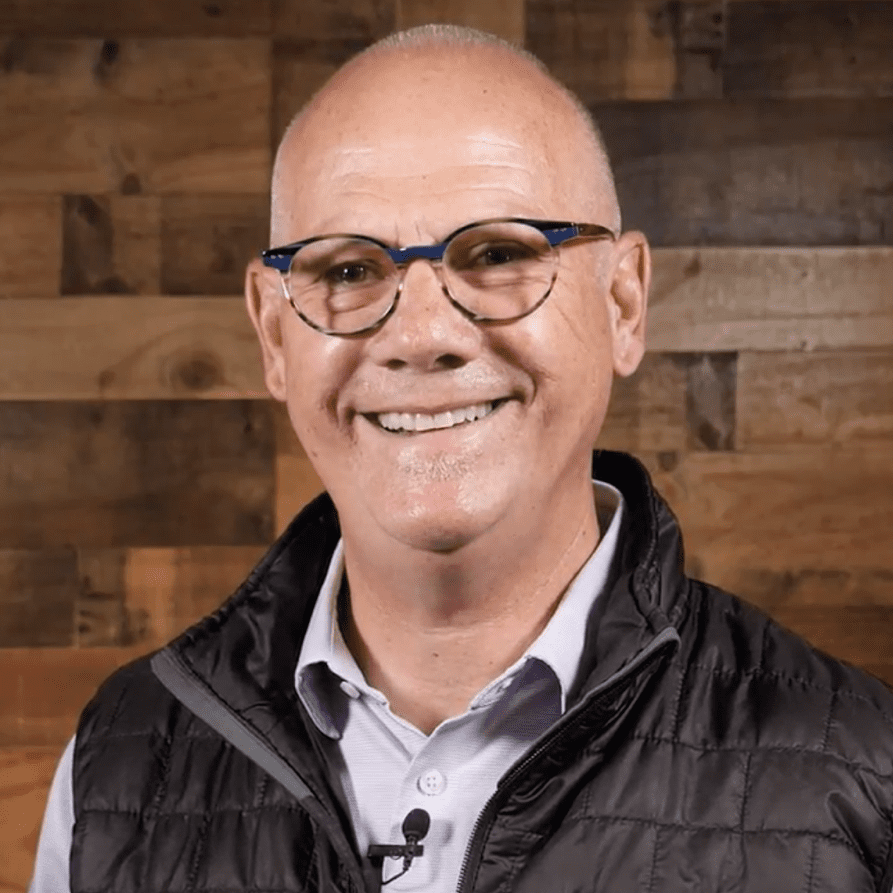






"The bigger deal, is actually not so much replacing labor, but it extends the career of the labors that you have."
- Nate Fetig | Alpine Gardens
Jack Jostes:
That was Nate Fetig, the general manager of a thriving multi-million dollar landscape company in Colorado, Alpine Gardens, sharing a really healthy mindset about technology. It doesn't replace laborers, rather, it helps your people avoid burnout and last longer. Nate and six of my other top landscaping clients got together with my entire staff for our first ever client advisory panel, where we met and talked with each other about the green industry business and working together. Today, I'm going to share some of our key business takeaways from this exclusive event, including challenges landscaping leaders are facing around the country, and tips for solving them. Do 40 work weeks really work in the green industry? How to talk to clients about fluctuating and increasing material costs, shortages, and delays? The pros and cons of the H-2B visa program and why some landscapers swear by it while others absolutely avoid it. And, helpful perspectives on how branding and marketing can help you stand out and increase your prices in a competitive market. Let's get into it.
Jack Jostes:
What's up everyone? Jack Jostes here. Welcome to the landscapers guide to modern sales and marketing podcast. This show is all about helping the green industry get found by better customers, increase your rates and ultimately enjoy a better lifestyle. We talk about sales, marketing, and business. And today, I'm really excited to share some things I learned from my clients. We invited seven clients to do a client advisory panel during our third annual retreat. And all of them said yes, and took a half day out of their busy spring season to spend with me and my team. So I'm really grateful that they did that. And I can't wait to share with you some of the things that we talked about in that client advisory panel.
What Are Some Of The Challenges That You're Facing In Business?
Nate Fetig:
The biggest challenge right now is finding people. We've got more demand than we know what to deal with. We could grow 20% this year, if we could find employees. And they're just, they're not there to be had at the moment.
Chris Ahlgren:
To kind of repeat that we have a huge labor shortage in Connecticut right now. Well, not a shortage, but nobody wants to work. We can't get anybody to apply. Even for 20, $25 an hour plus positions, we can't get anybody to apply for job openings. And then compounding on that, we have a huge material shortages we're looking at in Connecticut, whether it's pavers or plants or anything in between. I've never done bids before that I leave them open-ended for a paver choices that basically telling them the client will put in a patio for you of unknown design, color, shape. And then, what the supplier decides to send us is basically what we'll install is not far off of where we're at right now.
Are 4-Day Work Weeks Effective In The Landscaping Industry?
Jack Jostes:
One of our clients, Kelly Slater, the vice president of Pleasant Landscapes down in South Carolina, shared how her team leverages four-day work weeks to actually reduce overhead expenses. Here's how.
Kelley Slater:
As payroll costs are going up, and last year with the horrible labor shortage, we were in the same boat. I think, Chris mentioned 20, $25 an hour. So, last year, we raised all of our prices to compensate for that labor because we were paying more, the little bit of labor we had. And then again, this year, on the materials side, we've gone up, but we limit overtime because overtime is something that is configurable, and how you schedule and what you schedule. So, a couple of years back, we had moved to a four 10-hour shift work week appealing to Americans because it was a three-day weekend, but it also gave us that extra day that it was kind of related if we had significant growth. So, we're able to limit our overtime, which is a cost that isn't necessary.
Jack Jostes:
Alpine Gardens general manager, Nate Fetig shares how planning and proper accurate job costing is essential.
Nate Fetig:
It's all about planning. And, everyone thinks, we're in a seasonal market. And so, everyone thinks we're just sitting at home, twiddling our thumbs in the winter. And that's when we're working on the business, as well as still trying to sell work. But, it's all about budgeting for us with making sure our crew average wage calculations are accurate and including what our overtime factor is. And then, Kelly kind of alluded too, we're at the whim of mother nature. And so, landscapers make their money when it boils down. You're selling hours. And so, when you can't work, there's no way of getting that back. And so, you just have to really understand your pricing and be on top of watching your job costing as you go along and try and manage the labor and the materials and all the costs and make sure your pricing is accurate.
How Do Landscapers Handle Price Changes In Material Costs?
Jack Jostes:
When it comes to handling fluctuating material costs, Altera Landscape Designs Lead Pack Mule, Jefferey Riddle, handles it right upfront.
Jeffery Riddle:
Early in the sales cycle, we're sort of highlighting that as an issue for them and just saying, "Hey, if you guys want to wait until this market sells down, we wouldn't blame you. It's totally understandable." Then, sort of making it clear that we can't bear the increases in materials. If they happen after we signed our agreement, those increases are going to be born by the client. If we share upfront and we actually give them an opportunity to delay the project or do it next year or whatever, then they're usually, I mean, I've had one person say, "Okay, we're going to wait.' Most of the others are saying, "Okay, we understand and we want to go ahead." And then, they've made the decision to go ahead. And then if it happens, it's much less likely to end up in a fight.
Do Investments In New Technology Reduce The Need For Employees?
Robert Felton:
In a manufacturing world, it's easy to, maybe, replace labor with something like machinery. Yours, it's hard. It is very labor-driven. I have seen some of our clients experimenting with robotic lawn mowing and different things like that. And I was wondering if they had any examples of where, maybe you've replaced some labor with something that's been very beneficial or worked really well, maybe a machine. I mean, an example, maybe, Ramblin Jackson sometimes can replace an expensive marketing department. That's something that we've done in the past. And I'm just kind of curious, have you ever had a moment where you're like, "Wow, this piece of machinery really helped with that expense of labor costs." Just curious if it's ever worked for you.
Jeffery Riddle:
I mean, we've seen the small, the many loaders that are now powered by these super powerful small diesel engines. And, basically, they're hydraulic pumps on tracks and you attach anything to them and they're changing the game quite a bit. So, they save a lot of time. They prevent our guys from lifting things they shouldn't. You guys are all familiar with the Toro, the Ditch Witch and the Vermeer, and then, John Deere's getting in the game. So, we're going to see smaller, more powerful machines that are akin to robots coming soon.
Jack Jostes:
Nate shared an interesting perspective that technology doesn't always replace laborers. It often extends their career.
Nate Fetig:
Yeah, I think, just to follow that up, we also use the mini track loaders on every crew. I mean, we've done one and now we've got one on every crew. And I think, the bigger deal, Robert, is actually not so much replacing labor, but it extends the career of the labors that you have. Our industry is hard on the body. And so, the more you can mechanize, you can extend the career of skilled labor.
Jack Jostes:
Yeah. That's a great point. And, from a marketing standpoint, we always recommend having people, having photos of your fleet. If you have a fleet photos of your gear in your recruiting. Because I think, when people who know the tools that you have see that, they're going to be more likely to choose to work for you. So, that's one takeaway for us is to, I think, learn more about the equipment that you're using and make sure that we have even like, "Hey, Kubota or John Deere, they all have amazing photography on their own websites already." And we can usually get access to those.
What About The H-2B Visa Program?
Jack Jostes:
When it comes to using the H-2B visa program, I was fascinated to learn that while some of my clients absolutely swear by it, some absolutely avoid it and only use local talent.
Brian Sandrock:
What would you say in terms of each person? How much percentage do you have as far as local labor versus people you're getting like H-2B visa programs?
Kelley Slater:
For us, we're 90% H-2B. We are so dependent and so reliable on it and that cripples us in the bad years, but it also gives us 40 guys during the season when we need it. So, we're extremely dependent on the H-2B program.
Nate Fetig:
We've just made the decision so far to stick with 100% local labor because there's too much politics in the H-2B program. And, we've seen too many other companies not get their guys. And, we decided really rather go into the season, knowing that it's going to be hard to find people rather than getting a surprise in April. We intentionally applied and went through the application process a year ago for no other reason than to do kind of recon work as to what a lot of competitors are using. And the costs are astronomical, and the hardship is that we see the math, if for those who aren't familiar with H-2B program, whatever H-2B labor limit is set at $15.49, every one in your labor composite has to be at that or greater. So, instantaneously, you're increasing your labor composite, whether you want to or not. And we don't run the gamut on overtime.
Nate Fetig:
We're very, very diligent about here's what the labor hours are set at. Here's what you're expected to do as a foreman. And if you honor your off, we digitally track that, so we know by the end of the day. It's not like a month went by and we blink our eyes and say, "Well, what happened to June? What do we do?" So, we're able to talk with those foreman and they know what that talk is about. They know what we're doing. But, we won't accept any quality control deficiencies, either. So, that kind of is the check and balance of somebody who's just mowing and going.
How EOS Can Be Implemented In A Landscaping Business
Jack Jostes:
It was exciting to hear how similar our business as a digital marketing agency is similar to running a landscaping company, in some ways. In fact, one of our clients, Turk, leads his company, Cornerstone Partners Horticultural Services, using EOS, which we use at Ramblin Jackson.
Jim Turcan:
EOS is an entrepreneur operating system, and it's a very structured way to run your business. So, meetings are very diligent. You have a preset agenda, it's timed. It starts on time, it ends on time. You'll hear Ramblin Jackson talk about that quite a bit. And, there's issues that come up. And, rather than harping on them and turn it into a soap opera and it's the same issue again, you load those issues. Everybody on the team loads those issues. Are there departmental meetings, those issues, you've ranked them as a group and you say, "Hey, that's our biggest nugget. If we solve this issue before this meeting is done, that'll be considered a success." And you beat the snot out of that issue until you come to a resolution of it. So, there's another acronym IDS, which is identify the issue, to find the issue and solve the issue, to find and discuss the issue.
Nate Fetig:
And that's where everybody in the table says, "Why are we dealing with this? Why are we dealing with AR? Why are we dealing with? We can't find laborers. We could sell the doors off this place, but we can't find anybody to produce it." So you wrestle with that and you don't move on to the next issue. It's all that want to solve. When I first adopted EOS for our organization, I was like, "The scorecard thing is the checklist, right?" I don't want to be a police officer and like, "Oh, you missed this. Oh, you missed this one. Oh, you missed it." The scorecard is really cool. If the light bulb went off, when all the team members have to fill in their own scorecard, you're not filling it in for them. They have to fill it in so that, accountability is literally staring them right in the face.
Labor and Recruiting Is A Challenge
Jack Jostes:
Nearly all of our landscape clients who attended the panel have experienced the challenge in finding great people to join their team and handle all the demand, which begged the question, why do marketing when you're short on labor? Here's what Chris Ahlgren had to say.
Chris Ahlgren:
Marketing for us, as a couple of people mentioned, we had a fairly full pipeline and the situation that we're in, I'm our primary salesman for our company. So, the quality of leads has been my biggest challenge. And, we've been working through our process on developing pre-qualification to try to increase the quality of those leads. But, even with the shortage of labor, what we've found the way we do a lot of our marketing, our social media marketing is that it has actually helped draw some employees from other companies. People mentioned through our use of equipment, the way our employees work on our job sites, even just the brand name or vehicles.
Jack Jostes:
Wow, that's great. So, a lot of people often, you're ahead of the game, Chris, and recognizing that because many landscapers say, "Oh, because I don't have labor, I should not do marketing because I can't hire anyone." And I always say, "Hey, if there are A players out there looking for a job, they're going to Google you. They're going to look at you and your competitor. They're going to work for the three-star company with a ten-year old website that has a warning that pops up that tells you to fax in your resume, or they are going to apply online for the five-star company that has a mobile friendly website and photos of people ringing the bell or whatever."
Chris Ahlgren:
And that's the big thing we've already been using on our new ... Our new website just went live that they developed for us last week. So, we've already been using, that was one of the biggest adds to our website was the application. So, we're able to send potential employees right to our website to access that.
Current Challenges In The Green Industry
Jack Jostes:
No business is easy to run regardless of your industry. And there's some challenges that a lot of green industry businesses are experiencing. Here are some that Chris shared about being the main sales person and running the company.
Chris Ahlgren:
It's incredibly stressful, especially anybody. Any other owners here know that being a business owner, you get burnt out and you have off days and you just don't feel talking to anybody. I'm sure. So, being the only person who's doing selling, when you have those days, it's definitely more challenging because you have to be on your A game to sell projects and keep the pipeline of projects full. So, it's definitely challenging. It's one of our next oppositions we're working on filling is to actually have a dedicated salesman. But, that's getting all of the things that are in my head or any of your heads, I'm sure. It's trying to get that down on paper so salesmen can actually perform that job because if they don't do it correctly or not properly motivated, they can easily ... Just telling a job isn't, their jobs are a profitable job as their job. And that's been my biggest hold back from putting somebody, a staff member in that position.
Jack Jostes:
Inside Out Landscape Design owner, Andrea Mueller, shares how important it is that your branding is consistent.
Andrea Mueller:
So for us, definitely, the website was key. Branding like he was talking about, and as soon as we rebranded and making sure that all of our signatures on our emails and basically anything that could have our logo on it is consistent. And, because we just rebranded, we still have our uniforms to rebrand. So of course, sometimes you can't do everything all at once, but that has been really huge. And basically, when we post something that it aligns with our values and our core values, and just being consistent with our message.
Jack Jostes:
With regards to competition, Jeffrey Riddle shares how marketing puts you at the better of the two ends of the spectrum when it comes to the landscape industry.
Jeffery Riddle:
We're only four years old, but we're trying to create something in marketing is kind of ties it all together. It sort of says who are we to the world. And then, it uses that to create demand and to create opportunities for us and hopefully enough of them so that we can be choosy. And I love to have an advantage as a business owner. I don't like to go, just compete head to head with all the competitors. Dallas is a huge place and there's literally 10,000 people here doing landscaping. Unless you have an advantage, it's just a miserable life. And so, marketing ties all that together. How we communicate what we do and providing a better experience.
Jack Jostes:
Brandon Serpette from 3 Bears Landscaping in Minnesota shares how putting pricing information on his website leads to higher qualified leads.
Brandon Serpette:
That helps a lot. We just recently did that and that has helped at least get him in, but now we're getting even pickier and we have to keep getting pickier. And it's like, all we're talking about is trying to qualify leads, whether it's a customer or an employee, and then getting them in the door and how you treat them and all your processes. So, for us, patience is key and sticking with our budget marks and then having a high profile website with all the organic marketing to get that rolling.
Nate Fetig:
Brandon kind of hit the nail on the head with the pricing thing. Everyone doesn't really understand how complicated landscaping is with what it is now. I mean, it's not really going and putting in lawn and rock and trees anymore. We're building enclosed spaces outside. We're basically a general contractor and the options of what they can do are limitless. But everybody wants this price like they're buying a widget and they don't quite understand that everything is custom. And so, they call you, they show you around and it's like, "All right, what's this going to cost?" And they don't understand what all goes into that.
Nate Fetig:
And then kind of building off of that then, where we're at right now is we've got such a long backlog that they get the time to, after they've signed the contract, they get the time to think about what they've done. And then, they start changing things. And then, it just becomes this never ending thing. And so you're in the middle of the project and they're still changing things and they don't understand what effect that has on the cost, on the schedule, on the whole process.
Jack Jostes:
All right, everyone, thanks so much for checking out today's episode of the landscapers guide to modern sales and marketing. Hopefully you learned some things from this client advisory panel. And if you want to see the recap of the full retreat, click the link on the screen right now to see that episode or check out our show notes where we link to it below. My name is Jack Jostes and thanks so much for checking out today's show. If you're new here, I invite you to like this video and subscribe to our YouTube channel, where we post new content every week, created to help you grow your lawn and landscape company. I look forward to talking to you in the next episode.
